Text
In Conversation with S Ravi, Former Chairman of BSE: Understanding the Dynamics of Taxation
In a recent dialogue with Tarun Nangia and industry experts, S Ravi, former Chairman of BSE, delved into the discussion surrounding the proposed increase in the GST arrest threshold from 2 crore to 3 crore. Shedding light on the implications for taxpayers, Ravi emphasized the industry’s persistent demand for a higher threshold owing to concerns over potential arrests and pressures on the finance ministry to address the issue.
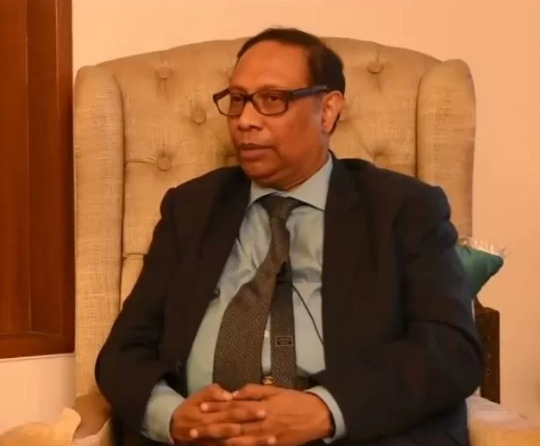
While the proposed increase appears modest, Sethurathnam Ravi noted that industry stakeholders are advocating for more significant adjustments. However, he acknowledged the government’s dilemma regarding the balance between supporting honest taxpayers and combatting fraudulent tax practices, which have been a significant concern given their widespread prevalence.
According to Ravi, the calibrated approach to raising the threshold reflects the government’s cautious stance, particularly in light of the challenges posed by fraudulent tax invoicing. With the introduction of E-invoicing, the government seeks to streamline tax administration while minimizing opportunities for malpractice.
Discussing the broader taxation landscape, Ravi emphasized the importance of striking a balance to prevent undue panic or hysteria among taxpayers. He highlighted systemic issues within the taxation framework and underscored the need for transparent and consultative approaches to tax enforcement.
S Ravi BSE, Former Chairman proposed various techniques, including faceless engagements and consultation with taxpayers before issuing notices, as effective means to address interpretation difficulties and ensure fairness in tax administration. By fostering open dialogue and understanding stakeholders’ perspectives, Ravi advocates for informed decision-making and resolution of taxation challenges.
In conclusion, Ravi’s insights underscore the complexities inherent in tax policy and enforcement. As stakeholders navigate evolving tax regulations, fostering collaboration and transparency remains essential to uphold the integrity and fairness of the taxation system. Through proactive engagement and strategic reforms, policymakers can work towards a more equitable and efficient tax regime that serves the interests of all stakeholders.
0 notes
Text
RBI Directs Visa and Mastercard to Halt Card-Based Commercial Payments: What You Need to Know
In a recent development, the Reserve Bank of India (RBI) has directed card networks Visa and Mastercard to suspend card-based commercial payments through payment service providers and companies. While the central bank has not officially disclosed the reasons behind the directive, reports suggest concerns regarding unauthorized transactions at outlets not sanctioned to accept such payments.
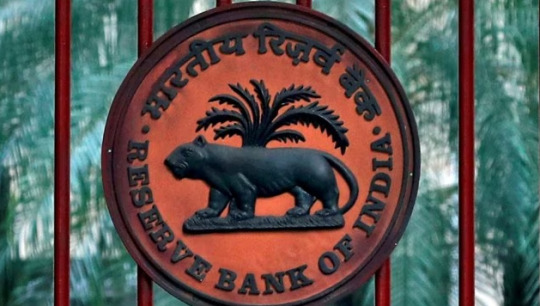
The regulatory action comes in the wake of heightened scrutiny in the fintech sector, following recent regulatory measures against leading payment platform Paytm. The RBI’s move underscores its commitment to maintaining the integrity and security of digital transactions while ensuring adherence to regulatory standards.
Fintech companies operating in the segment have reportedly facilitated transactions, such as tuition fees and rentals, through card-based payments, despite lacking authorization to accept such payments. This potential violation of the Payment and Settlement Systems Act, 2007, raises concerns regarding compliance and consumer protection.
Visa, in communication with fintechs, emphasized the directive from the regulator to suspend Business Payment Service Provider (BPSP) transactions until further notice. Failure to comply with these instructions could result in regulatory sanctions and non-compliance assessments under Visa rules, highlighting the gravity of the situation.
While specific details regarding the RBI’s directive remain undisclosed, industry insiders suggest that the central bank aims to ensure fintech players and service providers operate within the regulatory framework. Addressing potential KYC (Know Your Customer) issues, the RBI seeks to mitigate the risk of fraudulent or unauthorized transactions in the digital ecosystem.
The regulatory intervention reflects the RBI’s proactive approach towards safeguarding the interests of consumers and promoting financial stability in the digital era. The recent directive serves as a reminder of the evolving regulatory landscape in the fintech sector and the imperative for industry stakeholders to uphold compliance standards.
The RBI’s decision follows its action against Paytm, wherein the company was barred from offering core services, including accounts and wallets, citing multiple KYC and operational concerns. These measures underscore the regulator’s commitment to maintaining robust oversight and ensuring the integrity of India’s digital payment ecosystem.
As the fintech industry continues to evolve, regulatory compliance and consumer protection remain paramount. Industry participants are urged to remain vigilant and proactive in adhering to regulatory requirements to foster trust and confidence in digital financial services.
0 notes
Text
RBI Governor Urges Banks to Stay Vigilant Against Risks: Key Highlights
In a recent address, RBI Governor Shaktikanta Das emphasized the critical need for banks to maintain a vigilant stance against potential risks looming within the banking system. The call for heightened awareness comes amidst discussions on various challenges and opportunities facing the financial sector.
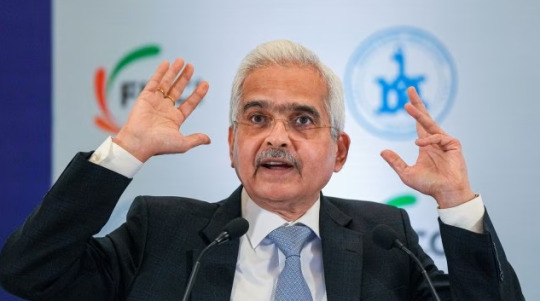
Governor Das conducted meetings with Managing Directors and CEOs of both public sector and select private sector banks, underscoring the importance of continuous dialogue between the RBI and the banking industry’s leadership.
While acknowledging the improved financial performance of banks and the overall sector, Governor Das stressed the absence of room for complacency. He emphasized the necessity for banks to remain vigilant and proactive in identifying and addressing any emerging risks that could undermine financial stability.
Key highlights from the discussions include:
Business Model Viability: Governor Das flagged concerns regarding the sustainability of banks’ business models, emphasizing the need for resilience and adaptability.
Outlier Growth in Personal Loans: The governor highlighted the need for banks to closely monitor personal loan portfolios, particularly instances of outlier growth that could pose risks to financial health.
Adherence to Co-lending Guidelines: Banks were reminded of the importance of adhering to co-lending guidelines, ensuring responsible lending practices.
Bank Exposure to NBFC Sector: The governor underscored the significance of managing bank exposure to the Non-Banking Financial Company (NBFC) sector, given its potential impact on systemic stability.
Liquidity Risk Management: Effective liquidity risk management strategies were emphasized to mitigate potential liquidity shocks and ensure smooth functioning of financial markets.
Furthermore, Governor Das addressed critical areas such as IT and cyber security preparedness, operational resilience, and digital fraud prevention. He emphasized the importance of robust customer grievance redressal mechanisms and the protection of customers’ interests to uphold the safety and stability of the financial system.
Encouraging banks to actively engage in RBI’s fintech initiatives and bolster Digital Banking Units (DBUs), Governor Das highlighted the pivotal role of technology in driving innovation and enhancing customer experience.
The meetings, attended by Deputy Governors M Rajeshwar Rao and Swaminathan J, along with executive directors-in-charge of regulation and supervision functions, underscore the collaborative efforts aimed at strengthening the resilience and efficiency of the banking sector in navigating evolving challenges and opportunities.
0 notes
Text
Shah Rukh Khan Steals the Show at Ranbir Kapoor-Alia Bhatt’s Housewarming Party in Hilarious Ad
In a delightful reunion, Bollywood stars Shah Rukh Khan, Ranbir Kapoor, and Alia Bhatt have come together once again, this time for a side-splitting advertisement. Following their previous collaborations where they portrayed iconic characters from movies like “Student of The Year,” “Barfi,” and “Jawan,” the trio has graced screens anew, this time bringing back characters from “Gangubai Kathiawadi,” “Rockstar,” and “Raees” for a rib-tickling commercial promoting TMT bars.

The ad unfolds with a housewarming celebration, with Ranbir’s character Jordan from “Rockstar” and Alia’s Gangubai Kathiawadi hosting the event. However, the party takes an unexpected turn when Shah Rukh’s Raees barges in, causing chaos and damaging the roof in the process. Alia’s character humorously remarks, “Seedha ghar mein ghuse hai Raees bhai,” to which SRK responds with his classic wit, “Ammi jaan kehti thi, koi bhi party choti ya badi nahi hoti. Jaana zaroor.”
Fans couldn’t contain their excitement, with one commenting, “What’s stopping Rungta from making a whole feature film at this point.” Another fan expressed, “I love these ads, they are so funny. Think the one before was better but still. SRK as Raees and Alia as Gangubai.”
In their previous collaboration, Alia portrayed Shanaya from “Student of the Year,” while Ranbir took on the role of Barfi. Shah Rukh, in his character from “Jawan,” added a twist to the storyline by holding them hostage in the metro, leading to a hilarious exchange. Alia’s character asks SRK, “Kaun ho tum?” To which he replies, “Main kaun hu, kaun nahi, pata nahi” in his Jawan style. Amusingly, Alia then calls out “Shiva,” but Ranbir gently reminds her that he’s actually Barfi.
With their impeccable comic timing and infectious chemistry, Shah Rukh, Ranbir, and Alia continue to captivate audiences, leaving us eagerly anticipating their next collaboration, be it on the big screen or in another amusing advertisement.
1 note
·
View note
Text
Unveiling Thangalaan: Pa Ranjith's Cinematic Exploration of Colonial Exploitation in Kolar Gold Fields
Pa Ranjith’s upcoming venture, “Thangalaan,” starring Vikram in the lead role, promises to be a cinematic journey delving into the depths of colonial exploitation set against the backdrop of the 19th-century Kolar Gold Fields. The film, much anticipated by Tamil cinema enthusiasts, marks yet another socially relevant narrative from the acclaimed director.

In a departure from commercial renditions of the Kolar Gold Fields, notably seen in Yash’s blockbuster “KGF,” Pa Ranjith’s “Thangalaan” offers a starkly realistic portrayal of historical events. The movie sheds light on the exploitation of both the region and its inhabitants by the British colonial forces, bringing to the forefront the struggles faced by indigenous tribes amidst the rampant mining operations.
Initially slated for release in January, the film’s launch was deferred to April due to post-production requirements, particularly in the realm of visual effects. Despite the teaser release, director Pa Ranjith has maintained a veil of secrecy around the project until now, heightening anticipation among fans and critics alike.
“Thangalaan” boasts a stellar cast including Malavika Mohanan, Parvathy, Pasupathi, Hollywood actor Daniel Caltagirone, and other luminaries from the Tamil film industry. Backed by Studio Green with a substantial budget, the film is poised for a nationwide release across multiple languages including Hindi, Tamil, Telugu, Kannada, and Malayalam.
Underlining the cinematic experience is the evocative musical score by GV Prakash Kumar, elevating the narrative and setting the stage for a captivating exploration of historical injustices and resilience.
As audiences await the unveiling of “Thangalaan” in April 2024, the film stands as a testament to Pa Ranjith’s commitment to storytelling that transcends entertainment, offering a thought-provoking reflection on societal narratives and historical legacies.
0 notes
Text
Delhi's Hardayal Library Staff Receive Pending Salaries from 2021; Kejriwal Highlights AAP's Commitment to Public Welfare
The Municipal Corporation of Delhi (MCD) has taken a significant step towards resolving the long-standing salary dispute of 96 employees at the Hardayal Municipal Public Library. After enduring a wait of five months without pay since 2021, the employees finally received their overdue salaries following directives from Chief Minister Arvind Kejriwal.
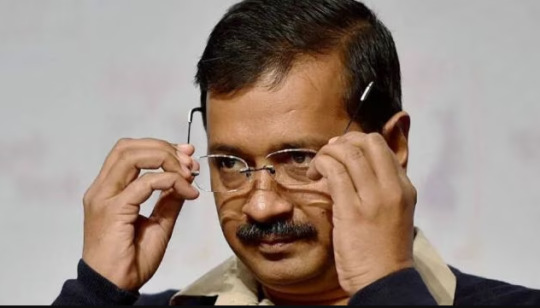
The library staff had been staging a dharna for the past 35 months, grappling with financial instability exacerbated by the lack of salary payments. The situation had reached a critical point, with the library facing a severe shortage of funds resulting in a four-month-long period without electricity, adversely affecting students’ ability to study.
In a statement to the press, the Aam Aadmi Party (AAP) acknowledged the release of salaries for the five-month period in 2021 as a significant development in addressing the employees’ grievances.
The root cause of the issue stemmed from a longstanding dispute between the AAP and the Bharatiya Janata Party (BJP) concerning the elections to the library’s managing body. Despite commitments made by MCD Mayor Shelly Oberoi in April, progress in resolving the salary crisis had been slow. However, recent developments, including the formation of a verification committee for salary distribution, signaled a positive shift towards resolution.
During his interaction with the Hardayal Library staff, Kejriwal expressed satisfaction at the salary disbursement while reaffirming the AAP’s commitment to addressing the challenges faced by the common people. He emphasized the government’s responsibility to cater to the basic needs of citizens, including access to electricity, water, education, and healthcare.
Kejriwal also criticized the BJP’s governance, alleging corruption and mismanagement during their 15-year tenure at the MCD. Despite facing obstacles imposed by the opposition, he highlighted the AAP’s efforts in improving civic services and ensuring transparency in governance.
Responding to the developments, Delhi BJP spokesperson Praveen Shankar Kapoor emphasized the need for government-level intervention to alleviate the financial crisis facing the Hardayal Library. Kapoor called for comprehensive support from the Delhi Government to address the library’s debts and facilitate its maintenance and expansion.
As the situation unfolds, the release of pending salaries marks a significant milestone in addressing the plight of Hardayal Library staff. However, sustained efforts and collaborative initiatives will be essential to ensure the long-term stability and prosperity of this iconic institution.
0 notes
Text
Chennai Traffic Police Launches Short Film Initiative to Promote Road Safety
The Greater Chennai Traffic Police (GCTP) has taken a proactive step towards enhancing road safety with the release of a series of short films under the initiative titled ‘Neenga Road Raja Va?’ (Are you the King of the Road). Directed by Vignesh Shivan, these films shed light on various traffic violations prevalent on Chennai roads, including wrong-side driving, dangerous maneuvers, and disregard for pedestrian crossings.
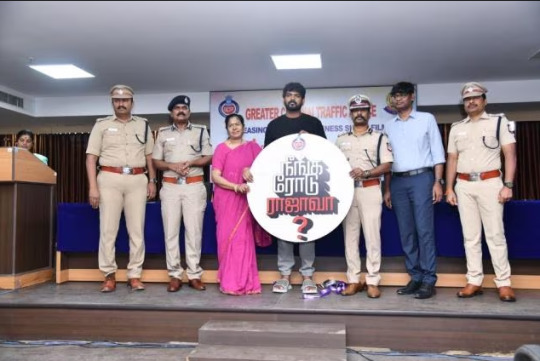
The initiative encourages commuters to actively participate in promoting road safety by capturing instances of traffic violations and sharing them on social media platforms like X with the tag @RoadRaja. This collective effort aims to empower citizens to play a pivotal role in enforcing traffic rules and regulations.
According to statements released by the police department, Chennai has witnessed a notable decline in fatal accidents within GCTP limits. This positive trend is attributed to a combination of factors, including the automation of e-challans and robust awareness campaigns conducted by the city police.
In 2023, Chennai recorded a significant decrease in fatal accidents, marking a notable shift from its previous ranking as the top city in India for fatality rates. The number of fatal accidents dropped from 573 in 2021 to 204 in 2023, showcasing a commendable improvement in road safety standards.
Among the key statistics highlighted by the police, the reduction in fatalities due to riding without helmets is particularly noteworthy. Fatalities resulting from this violation decreased from 279 in 2021 to 196 in 2023, reflecting the efficacy of targeted awareness initiatives.
Additionally, the police report reveals that 60,181 cases of wrong-way driving were registered in 2023, underscoring the need for continuous efforts to educate and enforce traffic laws. Road safety programs conducted in schools have been instrumental in instilling awareness among young citizens, with over 100 schools participating and 7,200 students engaged in these initiatives.
The collaborative efforts of the Chennai Traffic Police and the active involvement of citizens in promoting road safety exemplify a commendable approach towards creating safer road environments. Through sustained awareness campaigns and innovative initiatives like ‘Neenga Road Raja Va?’, Chennai is paving the way for a more responsible and conscientious approach to road travel. Let’s all play our part in making Chennai’s roads safer for everyone.
0 notes
Text
Mastering Your Financial Destiny: S Ravi's Guide to Understanding and Building a Strong Credit Score
Your credit score serves as a financial passport, either opening doors to a world of opportunities or potentially constraining your financial journey. S Ravi BSE, former Chairman, shares insights on comprehending and building a robust credit score through disciplined financial habits and strategic planning.
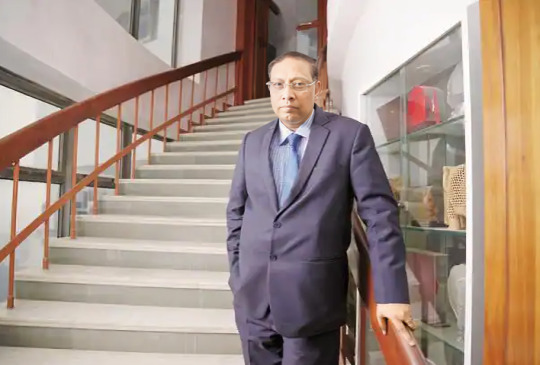
According to Sethurathnam Ravi, key components influencing your credit score trajectory include factors like payment history. Timely payments on credit cards, loans, and other financial commitments can significantly enhance your credit score. Maintaining older accounts and having a diverse mix of credit accounts can also positively impact your creditworthiness, provided these accounts are managed responsibly.
Building a good credit score requires a proactive approach and effective financial planning. S Ravi advises starting with setting a budget and living within your means. To avoid missed due dates, ensure timely bill payments and set up automatic reminders, preventing credit responsibilities from becoming overwhelming.
A high credit score, as emphasized by S Ravi, unlocks doors to improved financial options, including lower loan interest rates, favorable credit card terms, and increased credit limits. It also enhances bargaining power when dealing with lenders, potentially leading to better rates on loans and credit. Conversely, a poor credit score can result in loan denials or approvals with higher interest rates, limiting borrowing options and increasing overall expenses.
Therefore, S Ravi BSE, underscores the importance of understanding the factors influencing your credit score and how financial decisions impact your creditworthiness. He recommends staying informed by regularly checking credit reports. Your credit score is a powerful financial tool that shapes your future, and a good credit score opens doors to relevant opportunities.
In conclusion, S Ravi emphasizes the gradual process of building a strong credit score, emphasizing discipline and financial responsibility. As a financial expert, he provides valuable guidance to individuals seeking to navigate the intricate landscape of credit and secure a prosperous financial future.
1 note
·
View note